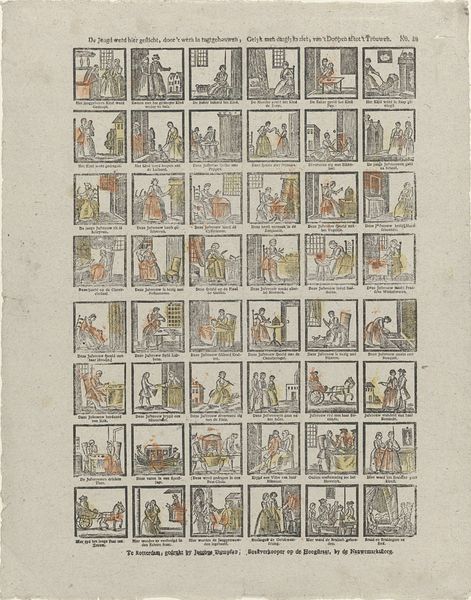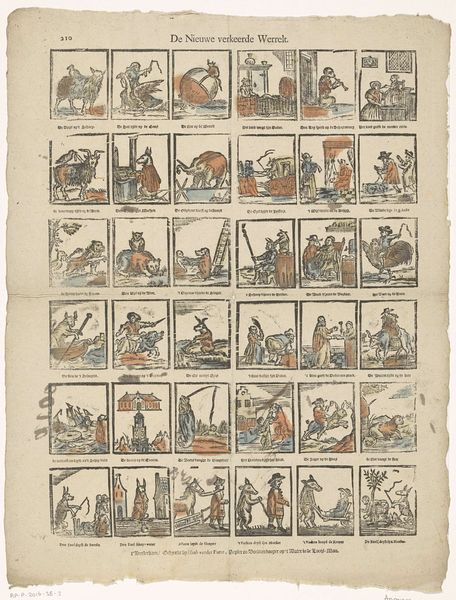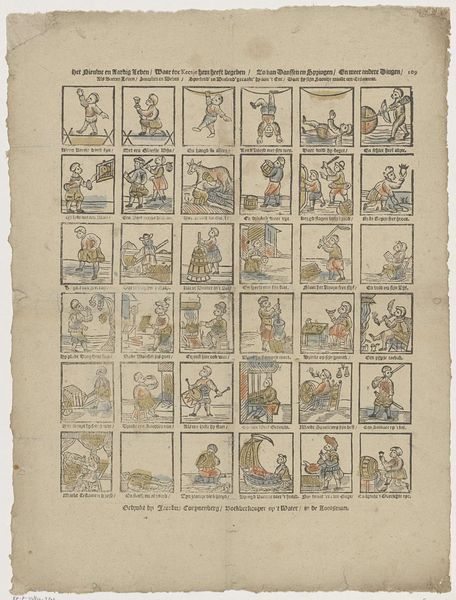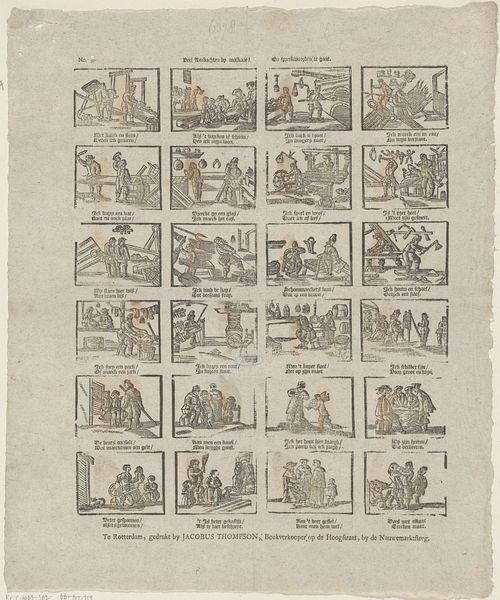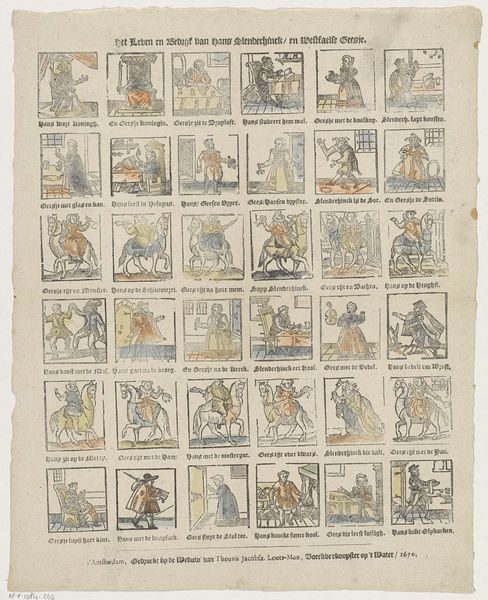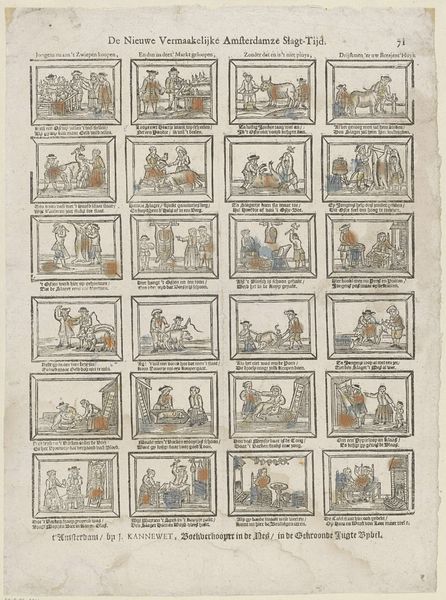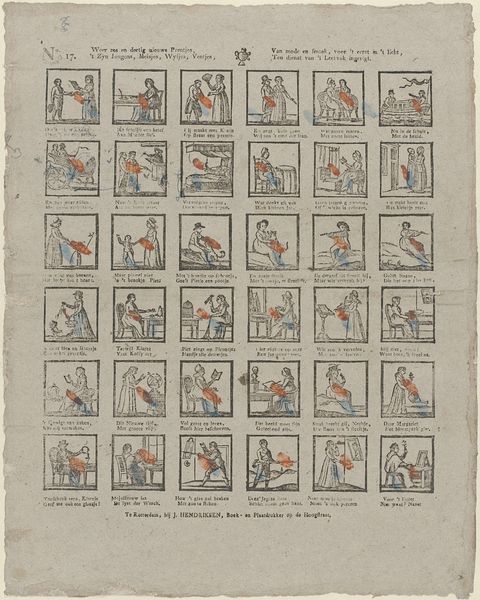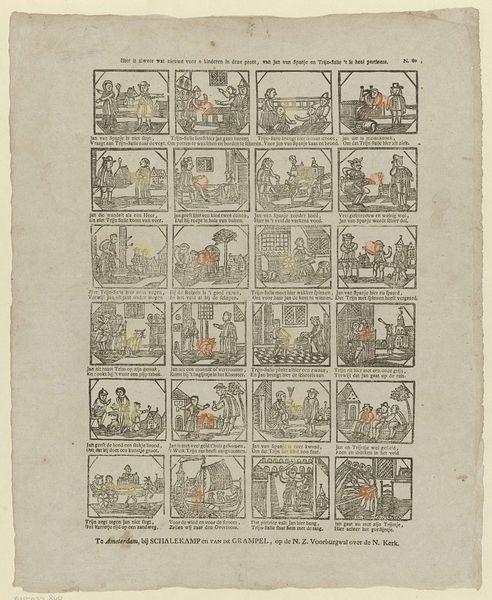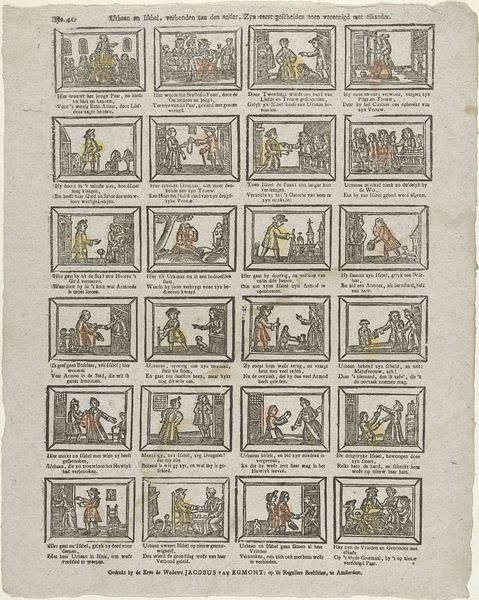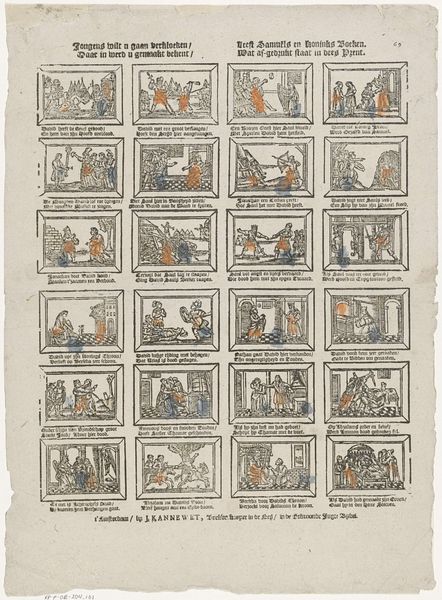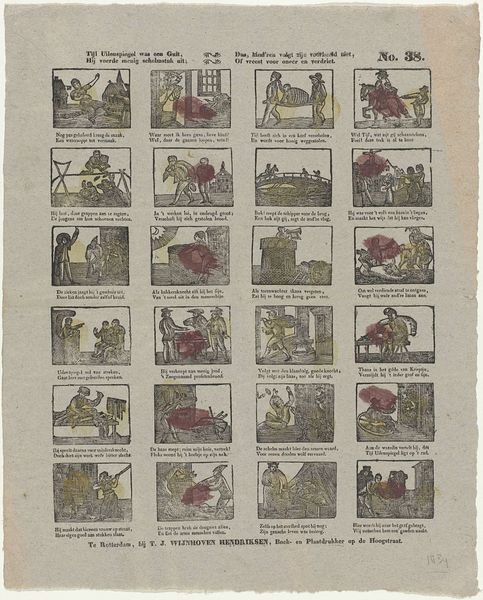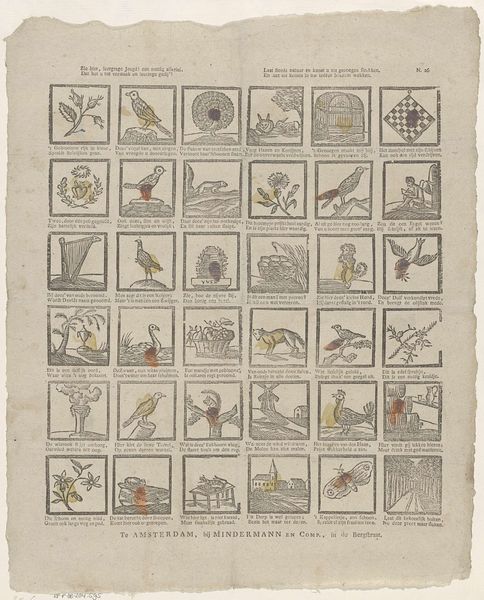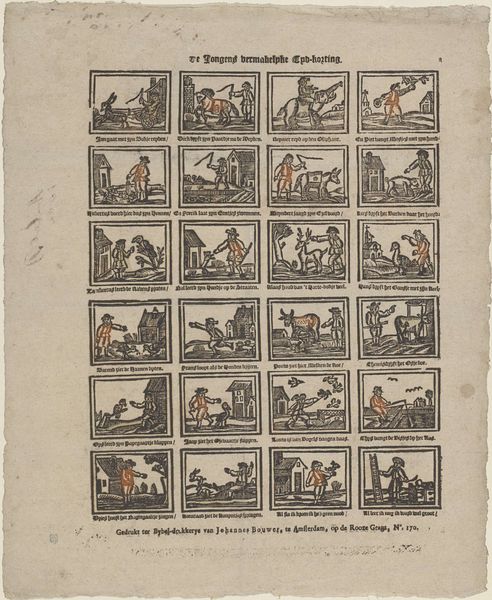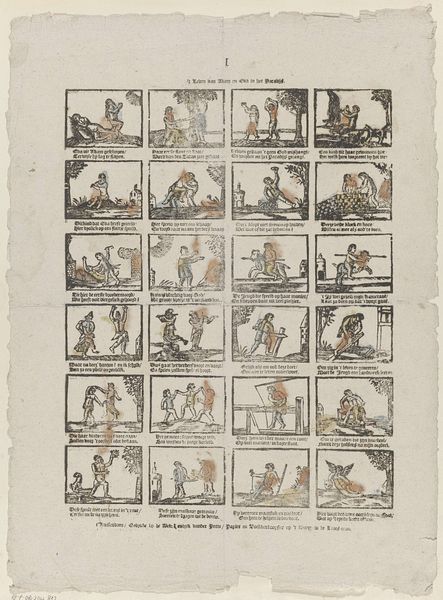
graphic-art, print, engraving
#
graphic-art
#
comic strip sketch
#
aged paper
#
dutch-golden-age
# print
#
sketch book
#
personal sketchbook
#
sketchwork
#
pen-ink sketch
#
pen work
#
sketchbook drawing
#
genre-painting
#
storyboard and sketchbook work
#
sketchbook art
#
engraving
Dimensions: height 410 mm, width 310 mm
Copyright: Rijks Museum: Open Domain
Curator: This is "De Verkeerde Waereld," or "The Topsy-Turvy World," an engraving dating sometime between 1761 and 1804, now held at the Rijksmuseum. Editor: It strikes me immediately as a critique of societal norms. There’s something playfully subversive about it. Curator: Exactly. These little vignettes each present a world turned upside down. For instance, one scene shows a fish flying and a bird swimming—a disruption of the natural order. Editor: And that reversal carries significant symbolic weight. We're seeing a dismantling of expected hierarchies and power structures. This was a time of Enlightenment questioning. How might this speak to revolutionary sentiments brewing at the time? Curator: Perhaps the artist sought to visually represent the burgeoning societal shift. It's presented through easily understandable imagery, allowing widespread interpretation and resonance. We can see "the world upside down" appears time and time again through visual language, going as far back as ancient Egypt, and persisting through the medieval era. Editor: That visual language creates accessibility. Think about the symbols themselves—the ox in place of the man, for instance, subverts social status. We’re seeing a commentary on social mobility or perhaps the lack thereof. It prompts us to think critically about what is deemed "natural" or "right." Curator: It could also function as a memento mori. Consider the visual weight of time as it decays into nothingness, and consider then the chaos or absurdity that follows—life turned on its head. By pointing out what is "wrong" it perhaps reflects on values of correctness at the time. Editor: I see that too, definitely. By calling out these absurdities, isn't the artist subtly encouraging us to imagine a world built on different principles? Principles of perhaps...equality and justice? Curator: It’s a visual riddle wrapped in societal reflection, provoking discourse then as now. Editor: A call for change cleverly disguised as whimsical entertainment, wouldn’t you agree? I find it endlessly fascinating.
Comments
No comments
Be the first to comment and join the conversation on the ultimate creative platform.
